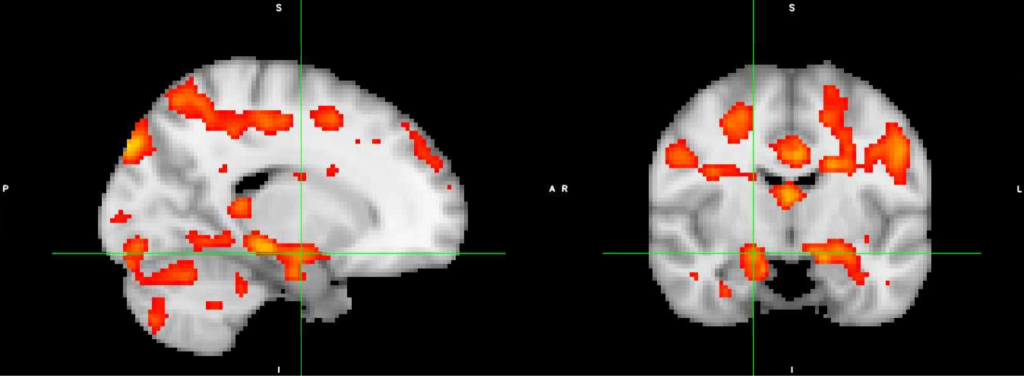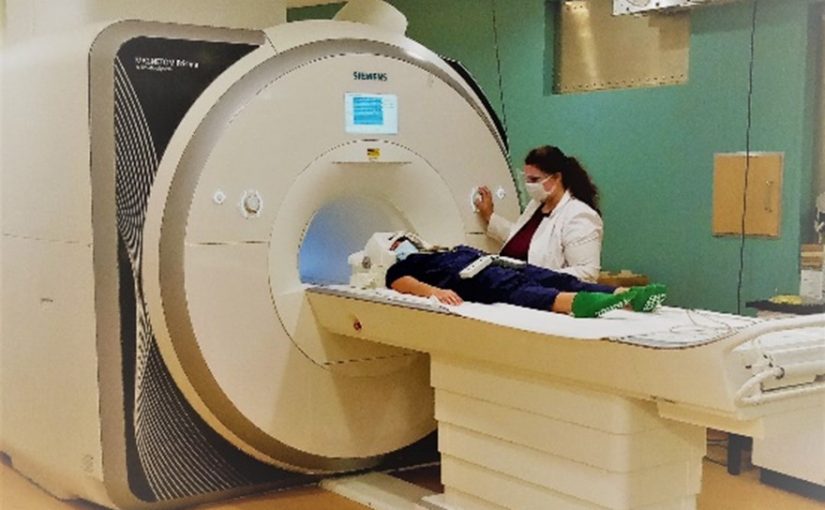October 12, 2023
By: Zach Miller
We are thrilled to report that our Brain Study of Stress & Social Support has completed all data collection. Our journey has been enriched by the participation of over 200 families who joined us for testing sessions at the University of Minnesota’s Center for Magnetic Resonance Research. Of the 208 children who participated, 108 were female and 100 were male, and they were accompanied by their mothers 88% of the time and their fathers 12% of the time. To all the families who dedicated their time and efforts to our research, we extend our heartfelt gratitude.
In this study, families completed a number of questionnaires before coming to the MRI scanning facility in-person. During the testing session, children provided saliva samples throughout the 2.5-hour visit which we use to measure cortisol, a stress hormone in the body. They also completed an MRI scan where they were presented with math problems and asked to respond with the correct answer. This scan is first conducted with additional stressors and then repeated without any added stress.
What we can share at this juncture is that the impact of stress on cognition matches some of our hypotheses. Figure 1 shows regional brain activity variations during the performance of mathematical tasks under stress versus under normal conditions. The brighter regions within these images signify heightened neural activity, indicating increased cognitive exertion when faced with stressors. Among other regions, we can see significant activity within the amygdala (crosshairs), a region associated with stress responses. Our preliminary analyses underscore the robustness of our experimental task and the coherence of our data.

Your involvement and support are vital to the advancement of science! Please consider joining us in related scientific endeavors. We are actively seeking participation from 11–14-year-olds in another research study. To check your eligibility and become a part of this work, kindly reach out to us via email at socialbuffering@umn.edu or give us a call at 612-626-8949.
Together, we can make a difference in the field of neuroscience. Join us on this remarkable expedition, and let’s unlock the mysteries of stress and social support in the brain!


